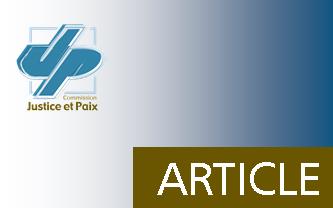En 2012, le Parlement européen recevait sur sa table une proposition de réforme de la coopération au développement en Amérique latine émanant de la Commission. Celle-ci, forte d’une analyse macroéconomique approfondie, déclarait que ces pays faisaient désormais partie de la catégorie dite des « pays à revenu intermédiaire” , en d’autres mots, qui bénéficient d’un taux de croissance et d’un PIB par habitant jugés assez important pour ne plus avoir besoin d’une aide au développement dite « classique ».
Dans un monde touché par une crise financière et économique globale, ces pays se démarquent en effet par des taux record de croissance s’échelonnant entre 2 à 5 % ! Cette nouvelle définition de la coopération propose en conséquence une réduction drastique de l’aide au développement allouée au continent… Pourtant, malgré ces indices de présupposées richesses, force est de constater que la réalité du terrain est éloignée du discours officiel. S’il est vrai que des progrès socio-économiques et politiques ont été enregistrés ces dernières années, un habitant du continent sur trois vit encore en dessous du seuil de pauvreté, soit près de 180 millions de personnes. Ces pays se situent parmi les plus hauts taux d’inégalités au monde. Ainsi, la réduction de la pauvreté et la lutte pour le cohésion sociale doivent encore rester des objectifs à atteindre dans les relations qui nous lient avec ce continent. Au regard des défis qui se posent, le Parlement s’est opposé à la Commission européenne par le biais d’une résolution l’appelant à reconsidérer sa position. Malgré une nature qui la fait pencher davantage à droite de l’échiquier politique, l’assemblée à souligné l’importance d’adopter des instruments de mesure différents, qui permettent de prendre en compte les réalités particulières vécues dans chaque pays ainsi que les besoins spécifiques pour décider de l’allocation de l’aide au développement. Les pays les plus durement touchés par cette réforme devraient être l’Équateur, la Colombie et le Pérou. Selon le rapporteur de la résolution, le parlementaire Ricardo Cortès,« l’approche de la Commission est trop radicale, car les critères qui la guident sont uniquement économiques. Nous croyons que le niveau total du soutien de la coopération en Amérique latine devrait être maintenu, avec une réaffectation des fonds vers les pays les moins avancés de la région ».
Le LAIF est un mécanisme mixte, alliant des subventions non remboursables et des prêts octroyés par l’Union européenne à des institutions du secteur privé. Cette somme de départ permettant ainsi aux bénéficiaires d’aller solliciter davantage de bailleurs de fonds plus importants, comme par exemple des banques régionales d’investissements.Pour la période 2009-2013, le LAIF compte sur une enveloppe de 125 millions d’euros destinée à des projets de réalisation d’infrastructures (routes, énergies), d’économie verte, de protection de l’environnement ainsi que de réduction de la pauvreté. Le 21 mars 2013, une coalition de réseaux européens d’ONG, dont la CIDSE et la CIFCA avec qui Justice et Paix collabore étroitement, a présenté à l’ensemble des groupes politiques du Parlement européen une étude sur les véritables impacts de cette nouvelle forme de coopération et a ainsi lancé un pavé dans la mare en se demandant « à qui bénéficie réellement la nouvelle coopération au développement ? » Les conclusions sont alarmantes. Sur les 10 projets déjà financés par le mécanisme, Camilo Tovar, consultant en économie, s’est penché particulièrement sur 4 d’entre eux. Selon lui, « on n’observe pas de lien direct entre le LAIF et la réduction de la pauvreté et des inégalités en Amérique latine. La priorité est donnée à la croissance économique à travers l’investissement dans des infrastructures ». Et Camilo Tovar de donner l’exemple très concret d’un parc à éoliennes situé à Oaxaca, au Mexique :
Le LAIF a octroyé une subvention de 3,3 millions d’euros à un consortium énergétique composé du géant italien Enel. Le projet de production d’électricité verte génère pourtant des impacts négatifs : l’emploi proposé n’est pas durable, les tarifs de l’électricité ont augmenté tous azimuts, et surtout, des populations indigènes entières ont été déplacées pour les besoins de l’exploitation entraînant ainsi un éclatement des activités productives et une désintégration sociale.En réalité, l’énergie produite sur le site est principalement réservée aux deux multinationales Nestlé et Femsa (filiale de Coca Cola). Ainsi, la promesse d’une énergie verte et bon marché octroyée aux populations locales est réduite à néant. La subvention européenne, si elle reste marginale par rapport au montage financier final, a permis au consortium de lever un financement complémentaire de 76 millions de dollars auprès de la Banque interaméricaine de développement… Si les sociétés civiles européenne et latino-américaine restent entièrement en faveur d’un maintien de la coopération au développement classique, c’est à dire une aide bilatérale octroyée par l’Union européenne aux gouvernements et à la société civile latino-américaine, elles ne sont pas dépourvues de propositions afin d’améliorer le mécanisme du LAIF, quoiqu’elles jugent en soi imparfait le fait de confier au secteur privé la responsabilité de l’aide au développement.






